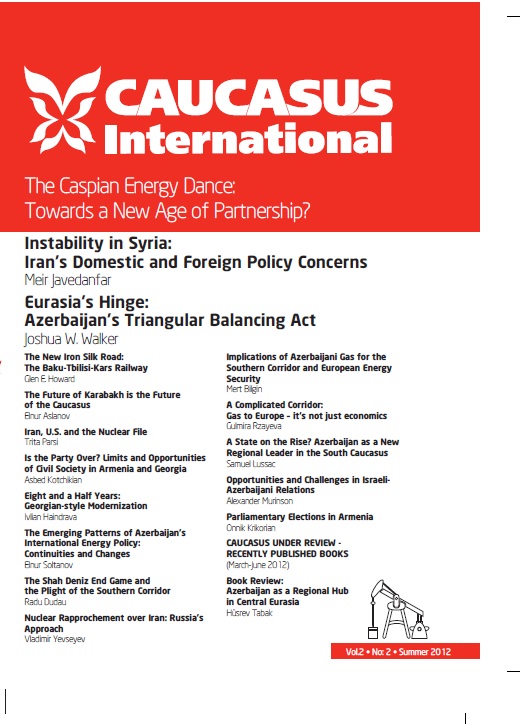The Emerging Patterns of Azerbaijan’s International Energy Policy: Continuities and Changes
This article examines Azerbaijan’s energy policy since independence, identifying continuities and changes. Opening with the continuities, the author argues that Azerbaijan has been very careful to avoid antagonizing Russia and Iran while deepening ties with the West. Secondly, it has proven to be a reliable partner in energy deals. Thirdly, in the direction of the West, Baku still has tried to diversify in terms of ownership and pipeline routes. Fourthly, having successfully negotiated the transport of its oil to the open sea via Georgia and Turkey, Azerbaijan is trying to replicate this success in the natural gas market. There are also new developments or modifications of the initial positions the country has taken. For instance, Azerbaijan is, arguably, becoming over-dependent on Turkey, acquiring more active role in the natural gas business and attempting to capture more profits in the hydrocarbon value chain. The country’s increasingly active stance in the resolution of the Nagorno-Karabakh conflict is another aspect. Last but not least, as Azerbaijan is extracting more oil and gas, the depletion rate is speeding up, which will push the country to explore for further reserves in sensitive border areas - where there is potential for conflict with neighbors.
Latest news
- 03/17/2020 Call for Submission: “Non-Alignment Movement and Its Perspective in International Affairs”. Deadline: 1 July 2020 2625 views
Popular articles
- 02/24/2020 The Role of Irredentism in Russia’s Foreign Policy 2536 views
- 02/24/2020 Construction of sub-national identity vis-à-vis parent state: Gagauz case in Moldova 2218 views
- 02/24/2020 The Conflict in Ukraine - The Geopolitics of Separatism and Divergent Identities (Commentary) 2072 views
- 02/24/2020 The Role of the Soviet Past in Contemporary Georgia 2044 views





